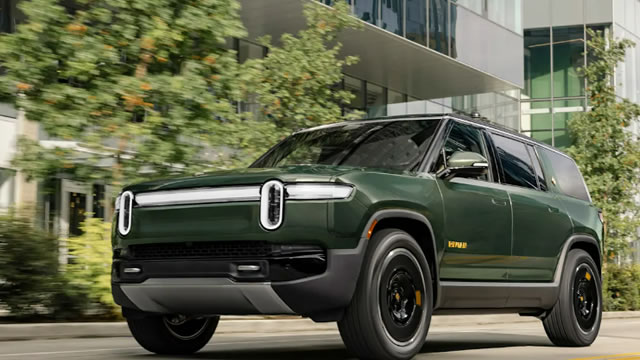Rivian Automotive faces production setbacks but long-term prospects remain strong
Rivian’s 2024 production forecast cut due to parts shortage
Rivian Automotive, the electric vehicle maker, recently announced that it will be cutting its 2024 production forecast due to a parts shortage. This news comes as a disappointment to investors and enthusiasts alike, as Rivian has been making waves in the EV industry with its innovative vehicles and sustainable practices.
A buying opportunity for investors
Despite missing delivery expectations for the third quarter of 2024, Rivian’s long-term growth prospects remain strong. With substantial cash reserves amounting to 74% of its market valuation, the company is well-positioned to weather this temporary setback and bounce back in the future. This dip in production could even present a buying opportunity for investors looking to capitalize on Rivian’s potential for growth.
Supply issues, not demand-driven
It’s important to note that Rivian’s production setbacks are likely due to supply chain issues rather than a lack of demand for its vehicles. The overall electric vehicle market is thriving, with strong sales from competitors such as Ford, GM, and Tesla. This indicates that Rivian’s struggles are more related to sourcing parts and materials rather than a lack of interest in electric vehicles.
Impact on individuals
For individual consumers, Rivian’s production cuts may result in longer wait times for pre-ordered vehicles. Those who have been eagerly anticipating the arrival of their Rivian electric vehicle may experience delays as the company works to overcome its parts shortage. However, once production ramps back up, customers can expect to receive high-quality, innovative electric vehicles that are worth the wait.
Impact on the world
In the broader context, Rivian’s production setbacks highlight the challenges that companies face in the transition to electric vehicles. As more automakers pivot towards sustainable transportation options, supply chain issues like parts shortages may become more common. However, this also signals a shift towards a greener, cleaner future as the world moves away from fossil fuels and towards electric-powered vehicles.
Conclusion
While Rivian Automotive may be facing production challenges in the short term, the company’s long-term prospects remain strong. Investors may see this dip as a buying opportunity, while individual consumers may experience delays in receiving their pre-ordered vehicles. Ultimately, Rivian’s struggles are a testament to the growing pains of the electric vehicle industry, but they also reflect a larger shift towards sustainable transportation options.





